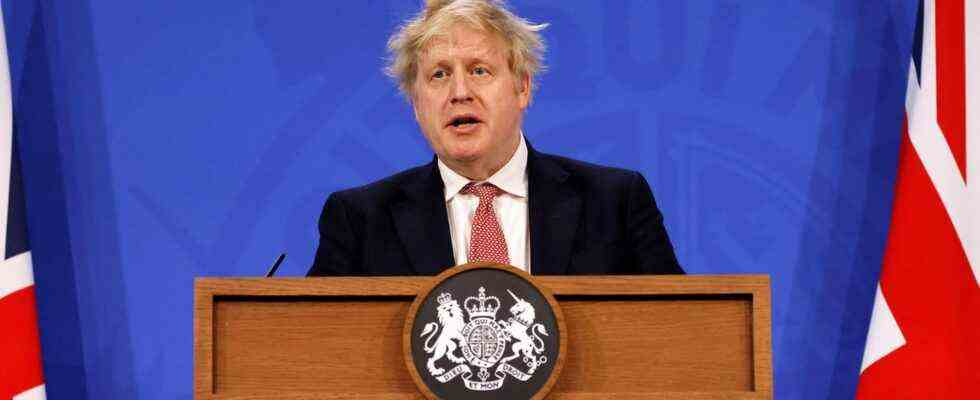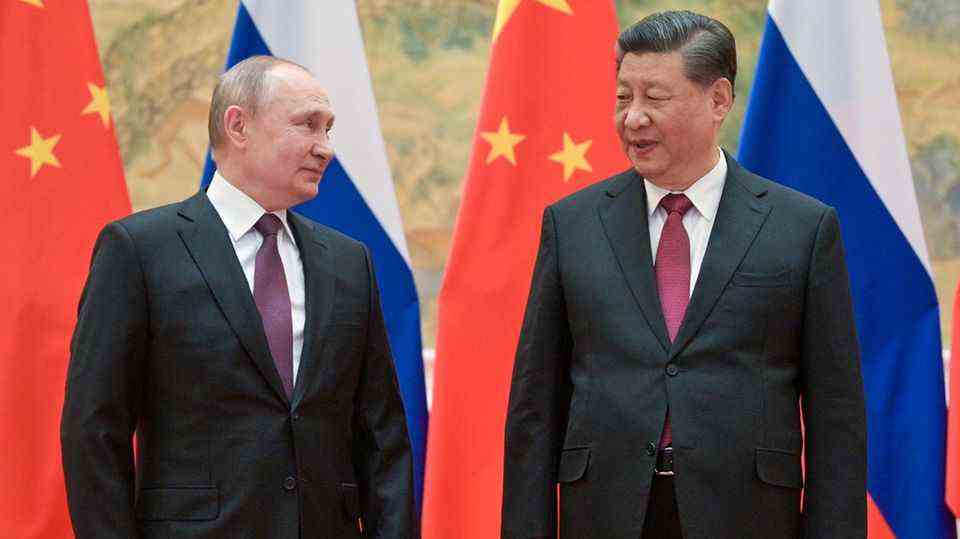Ukraine crisis
“A Very Dark Signal”: Reactions to Russia’s Recognition of Separatist Territories
Boris Johnson is firmly on Ukraine’s side
© Tolga Akmen / DPA
Russia has officially recognized the eastern Ukrainian separatist areas – a blatant violation of international law. In a TV address to the nation, Putin justified the move. Those are the reactions.
Russia has officially recognized the separatist areas in eastern Ukraine. President Vladimir Putin signed a corresponding decree on Monday evening. The step means a massive intensification of the Ukraine crisis. How to proceed is open. Nevertheless, there have already been some reactions from abroad and at home. A first overview:
The federal government:
The German government has condemned the recognition of the separatist areas in eastern Ukraine by Russian President Vladimir Putin as a “blatant breach of international law”. “We call on Russia to reverse the decision and return to the path of diplomatic and political conflict resolution,” said Foreign Minister Annalena Baerbock (Greens). She warned Russia “expressly against further military escalation”.
EU President Ursula von der Leyen on Twitter:
“The recognition of the two separatist areas in #Ukraine is a blatant violation of international law, Ukraine’s territorial integrity and the #Minsk agreements. The EU and its partners will respond in solidarity with Ukraine with unity, determination and determination.”
British Prime Minister Boris Johnson:
“This is an open breach of international law, a flagrant violation of Ukraine’s sovereignty and integrity.” Russia is violating the Minsk Agreement. “It’s a bad omen, a very dark signal,” Johnson said. He announced that Britain was closely aligned with Ukraine and was one of the few countries to have supplied defensive weapons to the ex-Soviet republic.
Czech Prime Minister Petr Fiala:
The recognition of the separatist areas is a “violation of international law and an act of aggression,” wrote the liberal-conservative politician on Twitter on Monday evening. “We know from our own history that such steps directed against a sovereign neighboring state will never lead to peace,” Fiala continued. In the Munich Agreement of 1938, England, France, Germany and Italy decided to cede the Sudetenland from Czechoslovakia. It is considered the climax of the policy of appeasement towards Nazi Germany, which, however, could not prevent the Second World War.
Romanian President Klaus Iohannis:
Iohannis called for “firm, immediate and unequivocal” sanctions against Russia. Putin’s act violated international law, Ukraine’s sovereignty and integrity, and the 2015 Minsk agreements to pacify the Ukrainian separatist areas, the head of state said in a statement on Monday evening. Romania will act together with partners and allies with an “appropriate response”. The EU– and NATO member Romania is also a neighboring country of Ukraine.
CDU politician Norbert Röttgen:
“This is a blatant breach of international law, a violation of Ukraine’s sovereignty by removing this part through recognition contrary to international law.” And to the speech: “This speech is a war speech.”
FDP defense politician Marie-Agnes Strack-Zimmermann on Twitter:
“He recognizes the so-called ‘people’s republics’ in eastern Ukraine and openly threatens war if Ukraine does not voluntarily give up its own territories,” wrote the defense policy spokeswoman for the FDP parliamentary group on Twitter on Monday evening. “He’s breaking the Minsk Agreement and denying Ukraine’s independence.” His speech was again an absolute distortion of all historical facts. “Now at the latest, the point has come where all possible sanctions must not be put into words, but consistently put on the table and implemented. We must support Ukraine.”


